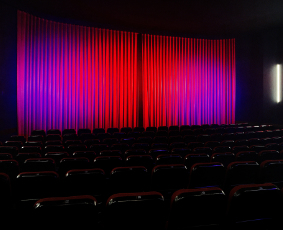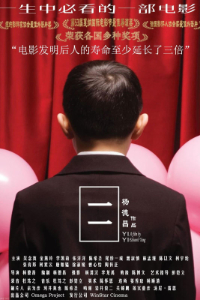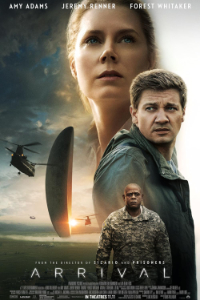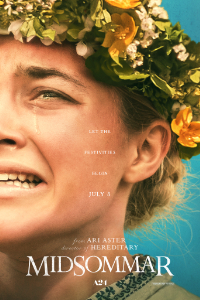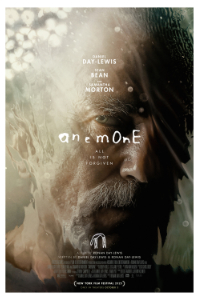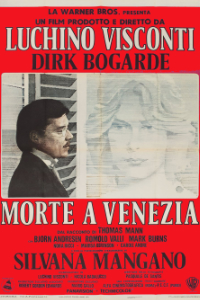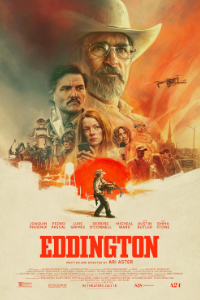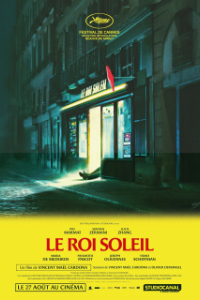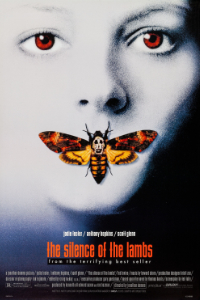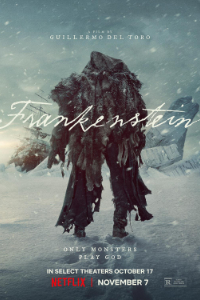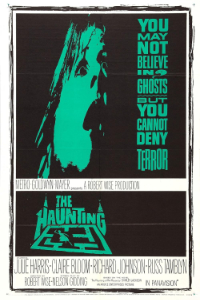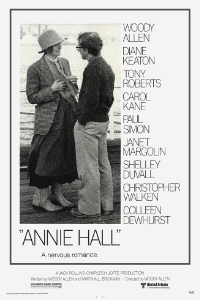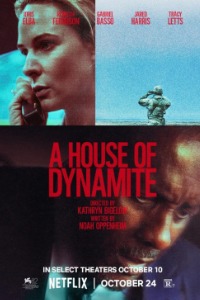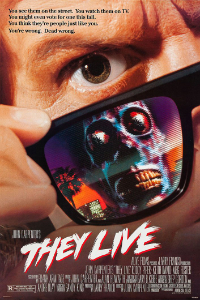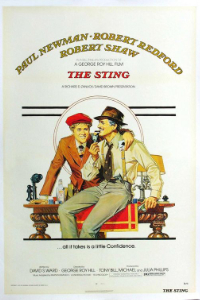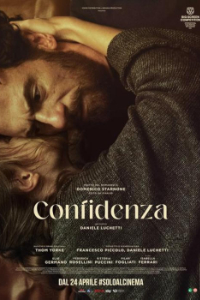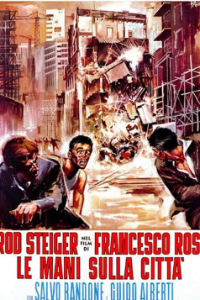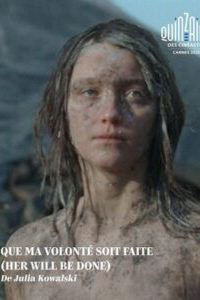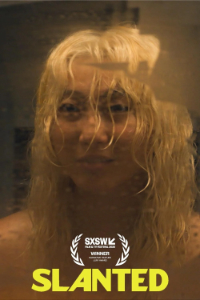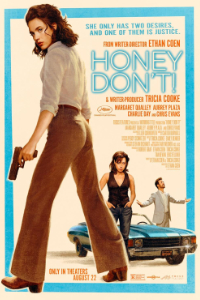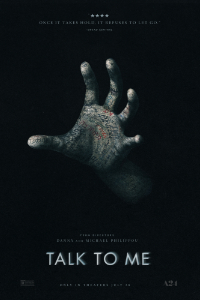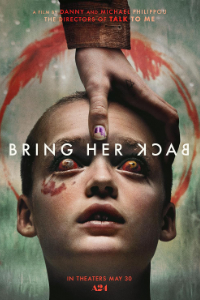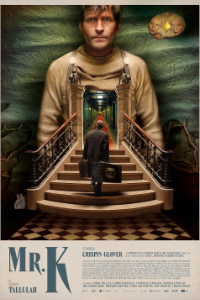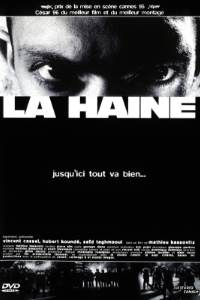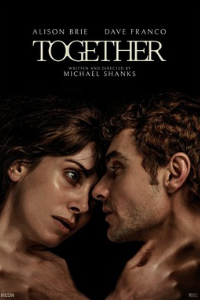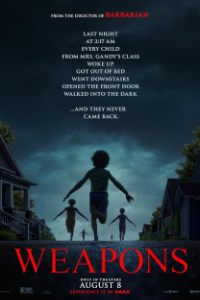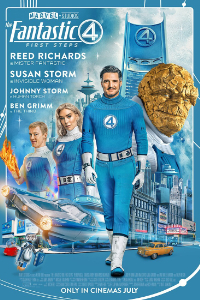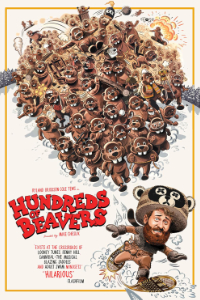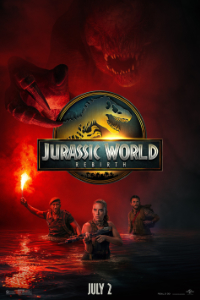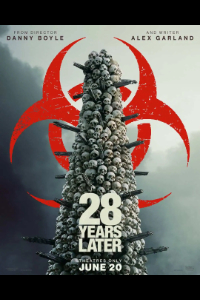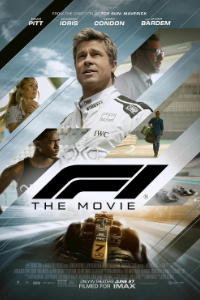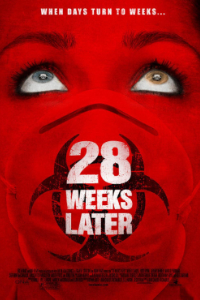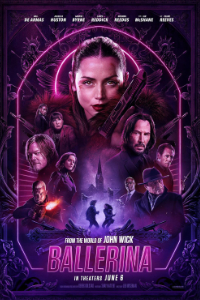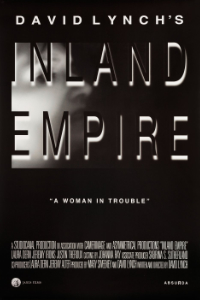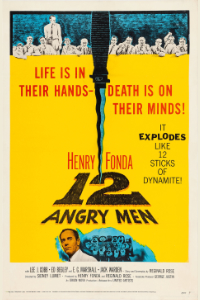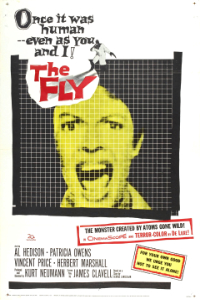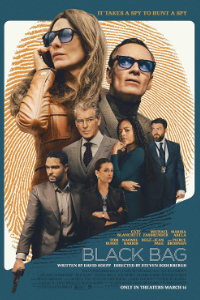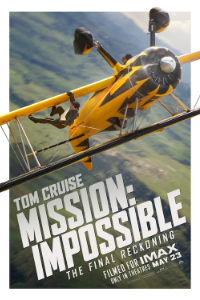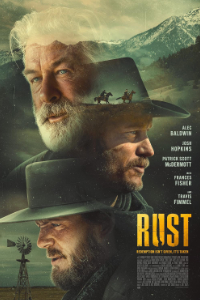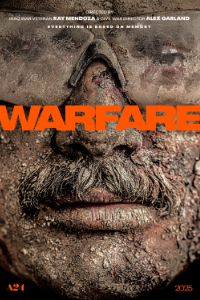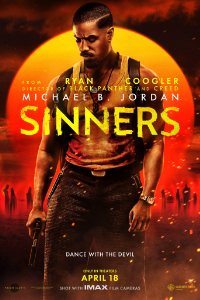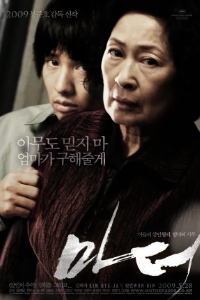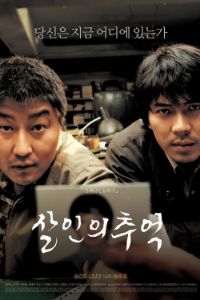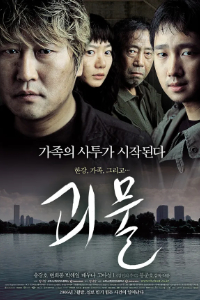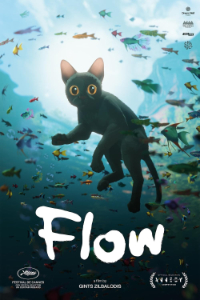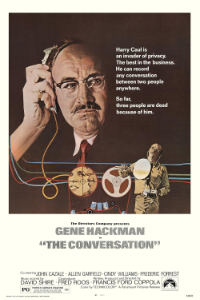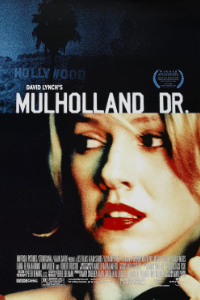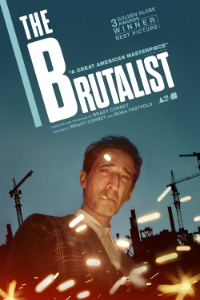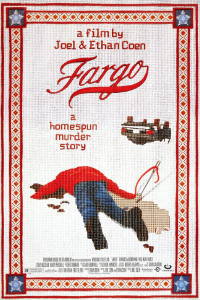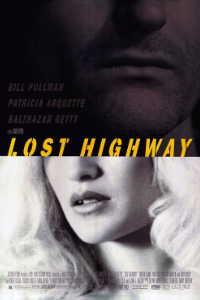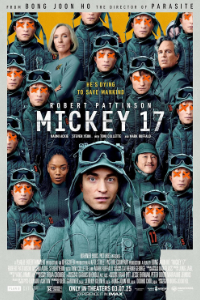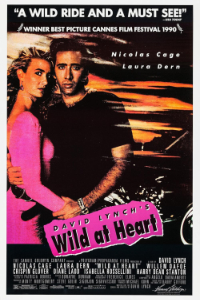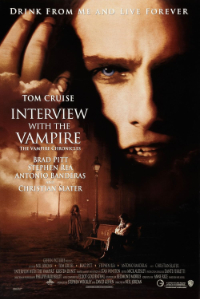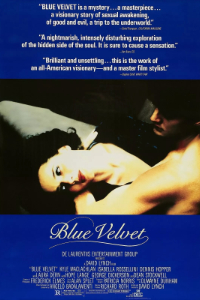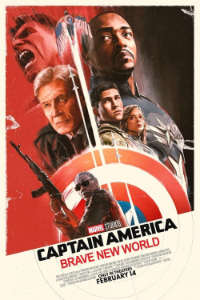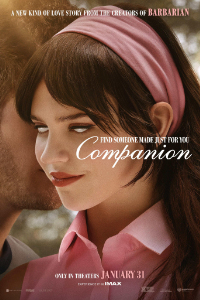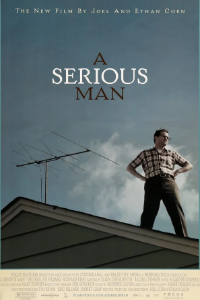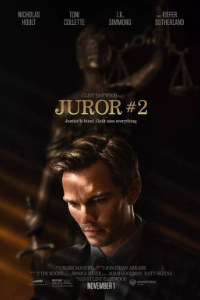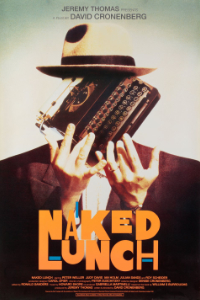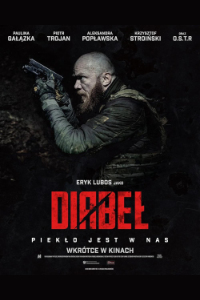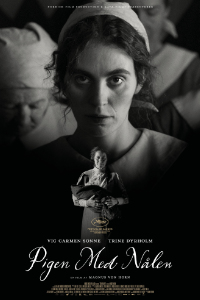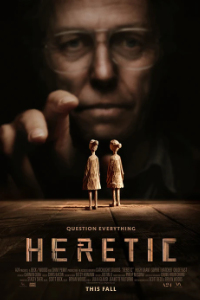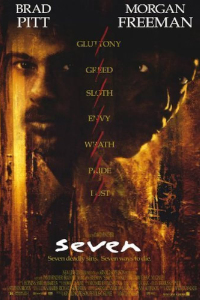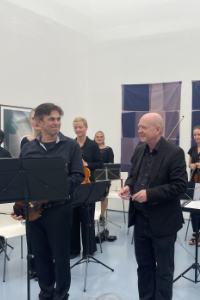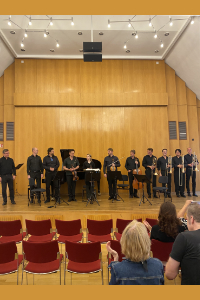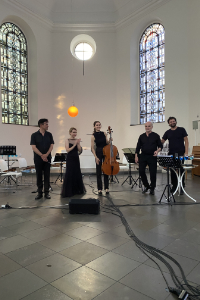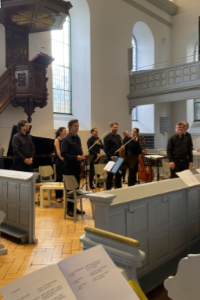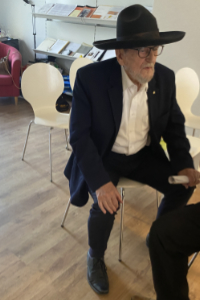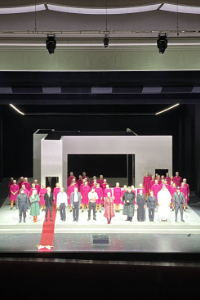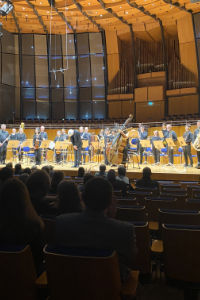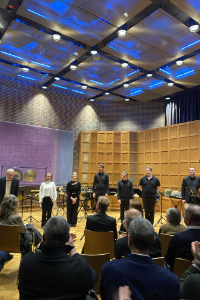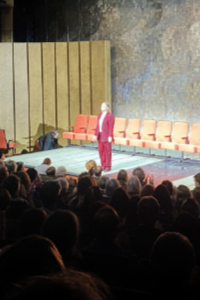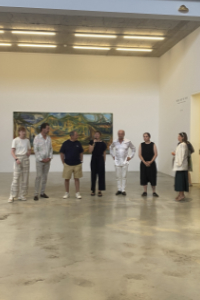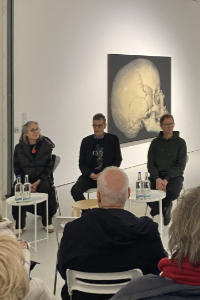A whole new year to be filled with micro-reviews (and links to full-scale reviews) for concerts, plays, exhibitions, and movies, the latter also crossposted on my Letterboxd account.
Enjoy!
Reviews from bygone years on this blog:
• All 2024 reviews
• All 2023 movie reviews
• All 2023 music & theater reviews
• All 2023 art event & exhibition reviews
________________
Movie
Dec 23, 2025, Bambi Theater
Edward Yang’s 2000 一一 (Yi Yi / One One)
Riveting movie in so many respects, and the (subtitled) 25th Anniversary 4k Restoration version is a blast. While I don’t have a lot to say about the movie that the movie doesn’t already say, some aspects might pass you by if you’re not familiar with Taiwanese and Japanese history. For these and more, there’s the fantastic review “One Film, Two Island Nations” by Anthony Kao from 2013 that you should read.
Dec 16, 2025, Bambi Theater
Wuershan’s 2025 封神第二部:戰火西岐 (Fēng shén dì èr bù: Zhàn huǒ Xī Qí / The Investiture of the Gods II: The Battle of Xi Qi) aka Creation of the Gods II: Demon Force
Pending.
Dec 10, 2025, Bambi Theater
Denis Villeneuve’s 2016 Arrival
Pending.
Dec 09, 2025, Metropol Theater
Ari Aster’s 2019 Midsommar Director’s Cut
Pending.
Dec 03, 2025, Cinema Theater
Rian Johnson’s 2025 Wake Up Dead Man
Not a lot to say here. This third “Knives Out” installment has a again a terrifically clever screenplay and editing. Craig’s acting is just gorgeous. And Yedlin’s cinematography skillfully solves a lot of tricky lighting challenges with an Alexa 35 (from Netflix’s “approved cameras” list) and Zeiss Supreme Primes. Superiorly delightful fun!
Dec 02, 2025, Metropol Theater
Ari Aster’s 2018 Hereditary
Very effective horror movie that has a lot going on, not all of which can be digested and appreciated at the first viewing. Yet, everything falls into place at the end. Pogorzelski’s cinematography is both excellent and unsettling. Remarkably, the camera time and again calls attention to itself (which is usually meticulously avoided) as if it were a secret observer who stands perfectly still at first before it begins to move and follow the action. Together with a whole lot of special lenses (Frazier, macro, tilt-shift wide angle), it creates a superbly eerie, immersive, and scary environment.
Dec 01, 2025, Atelier Theater
Cédric Jimenez’s 2025 Chien 51 (aka Dog 51)
Dark tech future thriller reminiscent of Blade Runner and similar movies. Scriptwise it doesn’t invent the wheel, but it adds contemporary issues in interesting ways and offers sustained excellence in terms of actors, action, cinematography with a strong kinetic pull, and an impressive production value overall.
NOV 28, 2025, Metropol Theater
Michael Wadleigh’s 1981 Wolfen
Terrific movie that’s even better than I remembered it, and I particularly liked (and like) Olmos’s performance. What I didn’t remember was Horner’s score, which is widely indistinguishable from his Aliens score that he composed five years later, in terms of themes, harmonies, ostinati, meters, what have you. But hey! What’s a little recycled artwork among friends, right?
NOV 24, 2025, Atelier Theater
Ronan Day-Lewis’s 2025 Anemone
Great cinematography, great score and soundtrack, and marvelous acting—there are, however, some problems with the screenplay. It packs way too many issues full-throttle into one movie; many of the dialogues only work because Day-Lewis can make everything work; and the climactic revelation feels somewhat cop-out-y. Still, a stylish movie with impressive aesthetics and extraordinary performances well worth watching.
NOV 19, 2025, Metropol Theater
Luchino Visconti’s 1971 Morte a Venezia/Death in Venice
The cinematography and colors of this recently restored movie are mind-blowing, and I’d completely forgotten how faithful the script is to Mann’s novella while still making it work on film. Sure, Visconti turns Aschenbach into a composer instead of a writer and adds some flashbacks, but this makes a lot of sense for three reasons. First, it pulls the soundtrack of Mahler’s movements from his third and fifth symphonies right into the plot, making them quasi-diegetic. Then, the artistic and philosophical aspects conveyed in the flashbacks are much more visceral in the context of music than literature (and the only alternative to flashbacks themselves would have been a voiceover, which is a no-no). Finally, if you know more about the background of the novella, then you will find traces of Mahler everywhere in the text, almost like a barely repressed subtext. Talking of which, there are bad reviews out there that complain about Visconti making the plot of the novella “gay”—which, holy shit, can only mean those critics either read Lowe-Porter’s bowdlerized translation or laboriously nurture repressed issues of their own.
NOV 17, 2025, Cinema Theater
Ari Aster’s 2025 Eddington
I really don’t know what to think or make of this movie, but I gather that’s been among Aster’s priority intentions all along.
NOV 13, 2025, CineStar Theater
Edgar Wright’s 2025 The Running Man
I fondly remember the first movie adaptation by Glaser back in 1987, which didn’t have a lot to do with its source material but made up for it with heaps of action and a solid dose of goofiness. This one’s closer to King/Bachman’s novel, which is a good thing, but it doesn’t quite get its pacing right between thriller and action thriller. Nevertheless, it’s competent and gratifying enough to justify its existence as an enjoyable popcorn movie.
NOV 12, 2025, UFA Theater
Dan Trachtenberg’s 2025 Predator: Badlands
I’m always happy for every movie in the Alien universe that doesn’t suck, and this one not only doesn’t suck but is really good.
NOV 11, 2025, Metropol Theater
Paul Thomas Anderson’s 1999 Magnolia
One hour in I wasn’t convinced; two hours in I decided I didn’t like it. But the third hour was decent enough to make watching the movie worthwhile. All in all, yes, it’s interesting and not your usual fare, but in my case it failed to leave a lasting impression.
NOV 10, 2025, Bambi Theater
Franck Dubosc’s 2024 Un ours dans le Jura
Very black and highly entertaining comedy thriller with Fargo vibes in more than one respect.
NOV 10, 2025, Bambi Theater
Vincent Maël Cardona’s 2025 Le Roi Soleil
Excellent stage play-adjacent thriller where every development from surprise events to ostensibly clever moves by the characters relentlessly keeps making things worse.
NOV 04, 2025, Bambi Theater
Jonathan Demme’s 1991 The Silence of the Lambs
There’s a good argument to make that this movie’s serial killer’s disposition fuels transphobic sentiments, even if it was clearly not meant that way at all—the movie even goes out of its way to stress that the antagonist “isn’t transgender” and explains why. Which, alas, is itself problematic in terms of authoritative assertions who a “real” transgender person is and who is not. Nevertheless, The Silence of the Lambs is an incredible movie with an incredible Jodie Foster and a terrifying Anthony Hopkins, with a script and a cinematography where every scene and every setting tells a story about America, where “female victims” defy expectations and make their stands, and where horrors lurk around every corner.
NOV 02, 2025, Cinema Theater
Guillermo del Toro’s 2025 Frankenstein
Entertaining period piece with a spotty script that closes in on the spirit of Shelley’s novel but doesn’t quite get there, resorts to tropes a bit too often—including the electricity contrivance that isn’t in the novel at all—instead of offering something original and unexpected, and doesn’t exactly stay coherent in terms of what motivates its characters and their behavior. Add to that a cast committed to what the script allows; special effects that don’t always hit the mark; a cinematography that, numerous lavish backdrops notwithstanding, is never convincing enough to draw you into the picture; a monster that’s neither more nor less frightening than your average death metal frontman in makeup; music that is too illustrative to add anything to what’s already visually presented; and diegetic and non-diegetic baroque music that, again, doesn’t belong into this period at all. Decent it was—but the movie fails to add anything to what we already know from the novel and from the movies of old, and cinematic opulence alone does not a milestone make.
NOV 01, 2025, Atelier Theater
Yorgos Lanthimos’s 2025 Bugonia
Very weird movie with terrific cinematography, stellar performances, and an ending that, in the current climate, has a point.
OCT 31, 2025, Metropol Theater
Robert Wise’s 1963 The Haunting
A classic movie that, despite innovative cinematography, imaginative and clever practical special effect, and great music and sound effects, can’t quite pull it off thanks to a script that is neither daring nor decisive enough to instill genuine fear.
OCT 28, 2025, Metropol Theater
Woody Allen’s 1977 Annie Hall
Diane Keaton is a blast, great camera work, excellent cut, hilarious cameo appearances, and an outstanding script all of which earned the movie four out of the five “big” Academy Awards for a reason.
OCT 22, 2025, Rex am Ring
Kathryn Bigelow’s 2025 A House of Dynamite
Nerve-wrecking thriller that exposes with clockwork accuracy the vulnerabilities of our system along increasingly higher-echelon perspectives, where everything can go wrong despite everybody acting in good faith along well-thought-out procedures that cover every eventuality. A curious aside: as the president’s off-camera voice is clearly not Idris Elba’s, I kept my eyes peeled and caught its appearance in the credits, where it is attributed to Brian D. Coats (also listed now at IMDB). But nobody seems to have written about it or spelled out the reason in interviews.
OCT 21, 2025, Metropol Theater
Hélène Cattet and Bruno Forzani’s 2017 Laissez bronzer les cadavres
Psychedelically violent throw-back crime action thriller in Italo Western-style with ever-shifting allegiances that is fun to watch and not that hard to follow once you realize that there is one particular person who capitalizes on all the unforeseen complications by deliberately throwing a wrench into the works.
OCT 21, 2025, Metropol Theater
Hélène Cattet and Bruno Forzani’s 2025 Reflet dans un diamant mort
Highly enjoyable 1960-style Euro-trash spy thriller throwback with a protagonist who is a mixture of Visconti’s Gustav von Aschenbach and a sadistic secret government operative who revels in reminiscences of past and present hyperviolent atrocities in a labyrinthine space where unreliable memories and media spinoffs endlessly chase each other through false backdrops, mirrors, and trapdoors.
OCT 07, 2025, Bambi Theater
John Carpenter’s 1988 They Live
While Carpenter changes a lot and expands substantially on Ray Nelson’s story “Eight O’Clock in the Morning” on which the movie is based (and which never quite left me since I read it as a teenager), the script stays structurally true to it. Notwithstanding the movie’s intentional goofiness, amateurish actors, and straight-up bonkers scenes like the six-minute fistfight between friends that doesn’t make any difference for the plot, its social commentary is spot-on, and it is fun to watch.
OCT 06, 2025, Metropol Theater
George Roy Hill’s 1973 The Sting
There’s not a lot one can say about such a classic. Stylish, playful, clever, timed like clockwork, and mirroring its theme by playing its very own con game with the audience: not only as to what it makes the audience expect while watching it, but also as to what it makes the audience believe to be possible after having watched it.
SEP 21, 2025, Bambi Theater
Daniele Luchetti’s 2024 Confidenza
Not only is the terrible secret at the center of the plot never revealed, it is also never revealed what actually happens and what doesn’t. The script, the protagonist, and the camera are complicit in being unreliable narrators, and everything feels like a fictional biography within a fictional biography where false memories, odd imaginings, and red herrings abound, in an effort of the protagonist to appear more sympathetic and empathic than he really is, both to the world and to himself. Add to that excellent camera work and a terrific score by Thom Yorke, and you have, if slightly opaque, an enjoyable movie worth watching.
SEP 21, 2025, Bambi Theater
Francesco Rosi’s 1963 Le mani sulla città
Pending.
SEP 19, 2025, Residenz: Astor Film Lounge
Julia Kowalski’s 2025 Que ma volonte soit faite
Pending.
SEP 19, 2025, Residenz: Astor Film Lounge
Amy Wang’s 2025 Slanted
Pending.
SEP 17, 2025, Metropol Theater
Gabriele Mainetti’s 2025 La città proibita
If you take a closer look, the script of Gabriele Mainetti’s 2025 La città proibita offers a classic B-movie plot. But don’t let that fool you. While it’s certainly not an art movie script either, it’s surprisingly good and knows its craft and the rules of its genre, does a lot of clever things within its framework, and ties everything up in satisfying ways. The movie itself delivers across all important aspects, from directing to cinematography to acting to dialogues to furious martial arts combat to interesting and sympathetic characters. It’s sentimental and sad in the right places and hilariously funny in other, equally right places, sometimes in subtle ways, sometimes deliberately approaching slapstick as a clear nod to its genre. It has an empathic eye on cultural peculiarities and sensibilities, always with a wink and a sense of humor. Finally, it takes its own good time to develop its characters and their relationships, and that’s another aspect I thoroughly appreciate. For what the movie wants to be, it completely succeeds and does so in style.
(The only thing to complain about was the German subtitle set, which made highly dubious choices at times and even messed up at one point.)
SEP 14, 2025, Metropol Theater
Ethan Coen’s 2025 Honey Don’t!
Second movie of what has been announced to become a “lesbian neo-noir B-movie trilogy” by Ethan Coen. The ingredients before and behind the camera are familiar from his 2024 Drive-Away Dolls, and so is much of the humor that is usually labeled “black comedy” but is actually “Coen.” The first is a crime caper/road movie while this one’s a detective mystery, but the major difference is in the plotting: whereas the plot of Drive-Away Dolls follows its type’s formula and remains largely predictable, the plot of Honey Don’t! is all over the place and not particularly coherent (and doesn’t even follow the most basic Aristotelian rule). However, just like the first one, this one’s thoroughly entertaining, cinematographically outstanding, and positively worth watching.
SEP 12, 2025, Metropol Theater
Danny & Michael Philippou’s 2022 Talk to Me
Pending.
AUG 20, 2025, Metropol Theater
Danny & Michael Philippou’s 2025 Bring Her Back
Pending.
AUG 20, 2025, Metropol Theater
Tallulah H. Schwab’s 2024 Mr. K
Maybe I should have known better than to go and watch this coproduction of various European countries made with public funding from even more European countries. Sure, the title screams Kafka on the one hand, but the hotel as a world you can’t leave isn’t too fresh a theme on the other. As it turns out, of course, it doesn’t have anything to do with Kafka, at least not in any delightful—or delightfully puzzling—sense. But it gets worse. The unassailable barrier to enjoying Tallulah H. Schwab’s 2024 Mr. K is its screenplay: beyond the premise and the ending, nothing really interesting ever happens to attract curiosity or build suspense. All the things that happen are either familiar, or predictable, or the tritest social commentary imaginable, or make not quite sense if you look at them closely. And they certainly make no “Kafkaesque” sense or non-sense either as food for thought—attending, say, a batik workshop would be a more intellectually rewarding experience. (And I’m not dunking on batik workshops.) Also, each thing that happens is drawn out way too long. The dialogues and most of the acting feel more amateurish than arty, and Griebe’s cinematography never rises above what the—by all means not uninteresting—stage settings provide. And to call the ending “interesting” doesn’t equal calling it “good”—tacking what looks like footage on loan from Arrival at the stern doesn’t miraculously make this endeavor float. The only elements that shine are van der Veer’s foley work and the sound design, which are absolutely terrific and worth a much better movie.
AUG 13, 2025, Atelier Theater
Mathieu Kassovitz’s 1995 La Haine
Pending.
AUG 12, 2025, Metropol Theater
Michael Shanks’s 2025 Together
Pending.
AUG 8, 2025, CineStar Theater
Zach Cregger’s 2025 Weapons
Pending.
AUG 8, 2025, CineStar Theater (3D)
Matt Shakman’s 2025 The Fantastic Four: First Steps
While I wasn’t really into superhero comics as a teenager, I always had a weak spot for DC’s Green Lantern and Marvel’s Fantastic Four—the latter probably because of its combination of science fiction, family spirit (and issues), Ben’s background & Golem vibes, and the lack of secret identities. (About the Green Lantern I’m not so sure. Maybe it was just the oath and the costume—I was easily impressed as a teenager :-)). Thus, judging from trailers and reviews, I carefully avoided all TFF and GL movies so far to protect and preserve my fond memories. The trailer for Matt Shakman’s 2025 The Fantastic Four: First Steps, however, looked surprisingly decent—so I took the risk, watched the movie, and I’m happy. It’s everything I loved about the Fantastic Four when I was a teenager. And there’s even more to love: the 1960/1950 “Future That Never Was” retro style fusion; the character updates and family dynamics; the inherently positive spin on a future that—for a change—isn’t a dystopia (or pending dystopia); and how the major and minor conflicts are cast not as good vs. evil but in terms of irreconcilable forces and needs.
JUL 19, 2025, Metropol Theater
Ryland Brickson Cole Tews’s 2018 Lake Michigan Monster
Pending.
JUL 19, 2025, Metropol Theater
Mike Cheslik’s 2022 Hundreds of Beavers
Pending.
JUL 15, 2025, CineStar Theater
Gareth Edwards’s 2025 Jurassic World Rebirth
Pending.
JUN 26, 2025, CineStar Theater
Danny Boyle’s 2025 28 Years Later
Pending.
JUN 26, 2025, CineStar Theater
Joseph Kosinski’s 2025 F1
Pending.
JUN 11, 2025, Metropol Theater
Juan Carlos Fresnadillo’s 2007 28 Weeks Later
Pending.
JUN 11, 2025, CineStar Theater
Len Wiseman’s 2025 Ballerina
Pending.
JUN 8, 2025, Eulenspiegel Theater
David Lynch’s 2006 Inland Empire
Pending.
JUN 4, 2025, Metropol Theater
Sidney Lumet’s 1957 12 Angry Men
Pending.
MAY 30, 2025, Metropol Theater
Kurt Neumann’s 1958 The Fly
Pending.
MAY 29, 2025, CineStar Theater
Steven Soderbergh’s 2025 Black Bag
Pending.
MAY 29, 2025, CineStar Theater
Christopher McQuarrie’s 2025 Mission: Impossible—The Final Reckoning
Pending.
MAY 13, 2025, Bambi Theater
Joel Souza’s 2024 Rust
Pending.
MAY 09, 2025, CineStar Theater
Ray Mendoza & Alex Garland’s 2025 Warfare
Pending.
MAY 09, 2025, CineStar Theater
Ryan Coogler’s 2025 Sinners
Pending.
APR 09, 2025, Metropol Theater
Bong Joon-ho’s 2009 마더 (Madeo aka Mother)
Bong Joon-ho’s 2009 마더 (Madeo aka Mother) is a well-executed neo-noir murder mystery but also a movie about deception and self-deception, suppressed and suppressible memories, and how easily empathy and care can flip over, just like a coin, to savagery and murder in the absence of social cohesion and effective authorities. That path, from one side of the coin to the other, is labyrinthine and counterintuitive at first, becomes insidiously inexorable, and, in the end, psychologically inevitable and narratively necessary—which, brilliantly, script and editing illustrate and execute along the rules of the murder mystery genre. But there’s more—many scenes that, to some critics, seem to happen almost “gratuitously” and are regularly ascribed to “black humor” or Bong’s “quirks” are part of all that. They’re vital for the movie’s world-building, illustrating exactly the lack of social cohesion and incompetent law enforcement that make the plot’s development and its psychological dynamics possible and plausible. Directing, cinematography, and sound design are as terrific as the script, and especially the lead actors’ performances are outstanding.
APR 03, 2025, Metropol Theater
Bong Joon-ho’s 2003 살인의 추억 (Sarinui Chueok aka Memories of Murder)
Bong Joon-ho’s 2003 살인의 추억 (Sarinui Chueok aka Memories of Murder) is a fierce portrait of a South Korean small-town police force in the nineteen-eighties, who are ill-equipped in every possible respect to deal with a serial killer case. It’s not just their total lack of forensic technology and procedural knowledge. It’s also their profound lack of investigative skills, which—habitually hidden behind intimidation, callousness, misogyny, corruption, and sheer brutality—becomes increasingly visible to everyone as the investigation drags on. Which, at least initially, leads to a vicious circle with even more aggressive behavior to make up for it. Until finally the situation deteriorates so badly, emotionally and otherwise, that everything begins to shift: cluelessness to helplessness, aggression to desperation, goals to obsessions. The actors who pull this through are incredible, and so is Kim Hyung-koo’s cinematography. What’s galling is how many critics pigeonhole this movie into social satire, black comedy, comedic thriller, and similar, apparently oblivious to the fact that different cultures have different genres. Actually, when pressed by Hollywood (with money, I presume) into literally directing in this genre category that so many like to put his movies into, Bong delivers the worst lemon I’ve watched in decades. But Memories of Murder more than compensates for that, as it’s genuinely among the best movies I’ve seen in decades.
APR 02, 2025, Metropol Theater
Bong Joon-ho’s 2006 괴물 (Goemul [Monster] aka The Host)
Classic. Not in the sense that Bong Joon-ho’s 2006 괴물 (Goemul [Monster] aka The Host) reinvents the wheel, but that it succeeds in creating something fresh and exciting out of familiar elements, motifs, and tropes. As one of the things that stand out, the movie regularly lets its characters go emotionally overboard in essentially slapstick fashion but manages to create a deep emotional involvement with them at the same time that rivals not only the best horror movies but non-genre movies in general. Funny enough, the scene that seems most contrived at first glance—the introductory scene where an American (civilian) mortician at a U.S. base forces his assistant to dump 120 liters of formaldehyde into the sink (and from there into the river)—is actually based on a real incident. It’s a horror/monster movie, a dysfunctional family drama, a slapstick comedy, and political commentary on America’s involvement and interests in Korea and Vietnam (“Agent Yellow”), and an environmental satire all rolled in one, and everything fits perfectly together.
APR 02, 2025, Atelier Theater
Gints Zilbalodis’s 2024 Flow
By now probably everybody and their cat knows that Gints Zilbalodis’s 2024 Flow was entirely created in Blender, but it should be mentioned nevertheless. It’s a wonderful little movie that develops the dynamics of its post-apocalyptic theme from individual survival to cooperation to social bonds without the usual tropes of destruction and decay. And while the mood along motifs of loss and nostalgia figures large, it never conveys hopelessness. The style is peculiarly beautiful. It’s neither classical nor digital-as-usual; there’s a considerable visual dose of gaminess; and some elements are even reminiscent of hand-drawn animation. The structure is mostly episodic but well-paced with a smooth dramatic curve. It would have profited, however, from foreshadowing—beyond an ominous horizon, that is—to make its mystical turns toward and around the climax feel less sudden. Also, the ending could have been slightly less ambiguous for my taste. Finally, straddling the thin line between genuine and anthropomorphized animal behavior to maintain its dramatic structure, Flow mostly succeeds in sticking to the former, but at the cost of introducing fantastic elements at times. Yet even with those elements, that’s highly appreciated—I’m not a fan of anthropomorphizing animals in general, and particularly Disney has squeezed every last drop of lifeblood out of it as of late.
APR 01, 2025, CineStar Theater
Jiaozi’s 2025 哪吒之魔童闹海 (Nézhā zhī Mótóng nào hǎi [Nezha: Sea-Churning Demon Boy] aka Ne Zha 2
Sometimes it feels as if 90% of Chinese adventure movies are based on material from just three epic mega-novels, one of them being Xu Zhonglin’s 16th-century Fengshen Yanyi/The Investiture of the Gods, on which Joaozi’s 2025 New Year blockbuster 哪吒之魔童闹海 (Nézhā zhī Mótóng nào hǎi [Nezha: Sea-Churning Demon Boy]) is based. With thousands of people across 140 animation studios and five years of production time, the movie cost $80 million to make but should be well on its way now to making $3 billion in return ($2.2bn last March), breaking too many box office records to enumerate. (For comparison: Miyazaki’s 2023 君たちはどう生きるか (How Do Y’all Live? aka The Boy and the Heron) made about $300 million on an estimated budget of $50–60 million; Favreau’s 2019 The Lion King made $1.7 billion on a $250–260 million budget.) And, yeah, Nézhā zhī Mótóng nào hǎi is spectacular. It offers the entire palette of what this genre consists of, from fart jokes to intricate plots to betrayal and drama to loss and tragedy. (Which isn’t a genre-bender, mind—this combination of elements constitutes a popular mainstream genre in mainland Chinese cinema.) Also, it’s technically positively stunning and shows more things that are possible in animation than one can memorize. Finally, is it helpful to watch Jiaozi’s 2019 哪吒之魔童降世 (Nézhā zhī Mótóng Jiàngshì [Nezha: Descending Demon Boy]) first? Definitely, yes—less so because of the story and more so because a lot of what happens in the sequel doesn’t make sense without knowing why and how the characters relate to each other. But being familiar with Xu’s novel itself doesn’t hurt either, as the movie delivers full broadsides of lore roughly every two minutes.
MAR 31, 2025, Metropol Theater
Francis Ford Coppola’s 1974 The Conversation
Francis Ford Coppola made fine movies for about three decades, but during a small slice of time in the nineteen-seventies, between 1974 and 1979, his directing-trifecta The Conversation, The Godfather II, and Apocalypse Now earned him a place among the filmmaking giants. While less epic in scope and sprawling than the latter two, his 1974 The Conversation is brilliant in every conceivable way, from Coppola’s script to Hackman’s performance to Butler’s cinematography and Murch’s sound design and cut; and one shouldn’t forget Wexler’s cinematography of the haunting and unforgettable introduction sequence with its multiple—and at first eerily unlocatable—points of view. Plus, the movie’s surveillance theme and attached motifs around conspiracy, privacy, paranoia, and guilt would soon be on everyone’s mind when the Watergate investigation’s lid blew off. The movie’s atmosphere isn’t merely claustrophobic but plays throughout on poignant variations of it that trace an arc between archaic and modern techniques of intrusion and control—from the state-of-the-art surveillance equipment invading a crowded square to the confessional the protagonist enters in the course of the movie, places confining and restrictive in distinctly different ways yet both offering the illusion of anonymity and privacy while providing none of it at all.
MAR 17, 2025, Bambi Theater
David Lynch’s 2001 Mullholland Drive
MAR 06, 2025, Lichtburg Theater (70mm Analog)
Brady Corbet’s 2024 The Brutalist
Brady Corbet’s 2024 The Brutalist is a highly ambitious monumental original American epic, with great acting, fantastic cinematography and music, and excellent sound design. Despite, or perhaps because of, the movie’s dizzying overabundance of motifs from the immigrant experience to physical trauma effects to antisemitism to the erosiveness of capitalist power, the overall theme remains opaque. Mostly, that is—similar to the way the movie doesn’t arrive at a particular theme or conclusion, the protagonist never arrives anywhere either. Moreover, in the “Epilogue” part, it is claimed by the protagonist’s niece that he once told her, “No matter what the others try and sell you, it is the destination, not the journey.” Which, interestingly, has to be taken with more than a grain of salt—not only do we never hear the protagonist claim that, but the niece and her family also had made aliyah earlier, the epitome of “destination,” causing considerable misgivings by trying to shame the protagonist and his wife into following her example. Thus, from immigration to unfinished architectural projects to falling apart mentally and physically, it becomes likely that the tension between epic journeys and elusive destinations is, if not the theme, at least an overarching connecting motif. Which, perhaps, should have been treated more prominently to keep everything together more tightly, given the movie’s runtime of three and a half hours. Add to that—several baffling exceptions with regard to the aforementioned niece’s character development notwithstanding—that the overall cut in general and the script’s nutshell technique and foreshadowings in particular are all fine but equally too subtle to keep a movie of this length with an intermission legibly together. Hence, key scenes come as a surprise or even shock that actually are well-prepared and shouldn’t. Crawley’s cinematography, filmed—incredibly—fully on VistaVision, is nothing short of great art. At the theater, sadly, only the first half was shown in its original 70mm analog format, courtesy of the DTS audio track collapsing several times, so that the management decided to switch to the digital version after the intermission. While no one’s fault, that was a major letdown.
MAR 04, 2025, Metropol Theater
Joel and Ethan Coen’s 1996 Fargo
In Joel and Ethan Coen’s 1997 Fargo, just everything is spot-on in brilliant ways—the screenplay, Deakins’s cinematography (he’s a giant), the sound design, Burwell’s score, the Coens’ terrific cut, and the stellar performances by essentially the entire cast. When I was still a kid and my father still a cop, he told me I shouldn’t believe a thing about how gangsters were depicted on TV, because “in reality, you know, crooks are stupid.” I think he would be delighted with Fargo, where the crooks keep reaching for new and unimagined levels of incompetence. But, miraculously, without ever being presented as caricatures, or in a cynical or sneering manner. As so often, the Coen brothers not only get away with taking huge risks and breaking tons of rules, but create an utterly original and delightful movie in the process. Another memory I have, from watching it for the first time, is that I had a hard time not laughing out loud in the theater when the opening credits claimed the movie were based on a true story, and that “out of respect for the dead” the story were “told exactly as it occurred.” Apparently, many people actually believed that—people who’d never heard of postmodernism; didn’t register the claim’s hilarious absurdity; and failed to notice the closing credit’s disclaimer that all persons and events “are fictitious.”
MAR 03, 2025, Bambi Theater
David Lynch’s 1997 Lost Highway
David Lynch’s 1997 Lost Highway, like many if not all of his movies, becomes more structurally coherent, psychologically haunting, and narratively impressive with every rewatch. Once again, reviews from the time are more than mixed, prominently failing to do their job by trying to “make sense” of it in unsuitable ways. Ebert even grasps at the surrealism straw by comparing it—unfavorably, of course—to Buñuel’s 1977 Cet obscur objet du désir. Which doesn’t work because Lost Highway’s surrealist elements, like its neo-noir and horror elements, are brilliant illusions, diversions even, whose expectations and tropes are constantly played with. What happens inside these illusions, however, soon becomes evident, intuitively at first, then emotionally, then analytically. Albeit on a level that precludes summarization, because the movie—like a dream or a fugue (state)—cannot be descriptively compressed into anything other than itself.
MAR 05, 2025, Metropol Theater
Bong Joon-ho‘s 2025 Mickey 17
Let’s put it this way. If you like watching movies where off-the-shelf dialogue is painstakingly drowned out by a voice-over audiobook, and if you‘re enthusiastic about slapstick that is as cognitively undemanding as it is performatively crude, and if you happen to love intellectually frugal and impeccably predictable socio-religio-political satire that makes Disaster Movie look like the Citicen Kane of the comedy genre, and if you appreciate haphazardly introduced gimmicks every ten minutes to keep the action going instead of development or foreshadowing, and if you prefer to have your interesting premise served in a retirement home of exhausted tropes that remember the time when horse-drawn carriages filled the streets, then Bong Joon-ho‘s 2025 Mickey 17 is the perfect movie for you.
FEB 24, 2025, Bambi Theater
David Lynch’s 1990 Wild at Heart
Back in my wilder days, David Lynch’s 1990 Wild at Heart was “our” movie. Her family was, let’s put it that way, monetarily more accomplished than mine, and her father hated me. While not a snakeskin jacket, I wore a brown leather jacket and western boots, and I smoked about as many cigarettes as Sailor does in the movie. We also, for various reasons, traveled around a lot, either in her car or on my motorbike together, loved rock ’n’ roll, and we even, after we’d watched the movie, began to refer to each other as Sailor and Lula in written notes. There were also moments of contemplation, like when she asked me, in tears, that there must be more to life than driving across the U.S. in a convertible, having sex, and smoking cigarettes, and she sure had a point there. But then, as Springsteen would say, times got hard, and I didn’t learn my lesson in time like Sailor, and all of this became history, and finally myth, and I miss her to this day. As for the movie, it’s fantastic and one of my all-time favorites. It was yet another movie critics had to warm up to first, and some of them took the Palme d’Or it was awarded with as a personal affront. Thus, go watch it as often as you can—in Sailor’s words, it has a lot of the same power Elvis had.
FEB 19, 2025, Metropol Theater
Neil Jordan’s 1994 Interview with the Vampire
I consistently managed to miss Neil Jordan’s 1994 Interview with the Vampire until now, probably because I’m neither into Rice (I tried) nor Cruise (with rare exceptions like 2001 Vanilla Sky). Now, for about the first half of the movie, I was mildly entertained but not too much. Even though Cruise is better in that role than I expected by a lot, I just can’t take him or Pitt seriously as late 1700s characters. And in the frame story, I keep confusing Pitt with Travolta, partly courtesy of Pitt’s 1994 Pulp Fiction styling, partly because 1996 Broken Arrow still vividly resides in my memory. All this gets much better, however, with the late nineteenth century Paris sequence: the characters become more believable; Banderas is a blast; something like a plot develops where there have been only character journeys before; stakes are at stake all of a sudden; and the script eventually gives Pitt something to do other than interminably wallow in pain and regret. The ending—even though it lacks some urgently needed foreshadowing—is also fine and clever; in the theater, I had been asking myself repeatedly how the script would escape from the corner it painted itself into through the frame story in particular. (As I understand it, that ending isn’t from Rice’s script, but from a rewrite by Jordan.) What else is good? Dunst, clearly, Goldenthal’s score, Winston’s special and makeup effects, Powell’s costumes, and Ferretti’s production design. Rousselot’s cinematography is nice, but camera angles and movement, to my taste, are a bit too operatically stilted to become truly dramatic, and the score has too often to come to the rescue. Also, together with some puzzling editing decisions, it even becomes a bit murky at times as to what’s actually happening.
FEB 17, 2025, Bambi Theater
David Lynch’s 1986 Blue Velvet
Not a lot hasn’t been written about David Lynch’s 1986 Blue Velvet, which I just now rewatched at a theater after what feels like a lifetime. So I’ll keep it snappy. (Although I could write several paragraphs on Splet’s sound design alone.) First, I never knew why I prefer Heineken to other export/lager brands, but now I realize why—subconscious hooks go a long way. Then, I totally forgot that Dean Stockwell is in it, and how awesome he is at being inexplicably terrifying. Next, I still have no idea which decade the movie’s supposed to take place in, and I’m still fifty-fifty on whether anything between entering Don’s dirty ear and leaving Jeffrey’s clean ear happens the way we watch it. I’m still sure, however, that these uncertainties are important, maybe even the point—and something certainly happens, some kind of journey, between these two complementary thresholds. Finally, of course there are Freudian motifs, but I think how they’re employed is more interesting and more complicated than what your friendly neighborhood run-of-the-mill psychoanalytic review unsurprisingly suggests. Heck, Freud himself is more interesting and complicated than that! (Not to speak of Lacan—I’d probably even be a fan of Žižek’s if he didn’t make being an exasperating asshat such a central part of his shtick.) And, as a coda, it’s a miracle again this great and important movie got made when it was made, particularly after Lynch’s disastrous experience with the movie that will not be named.
FEB 13, 2025, CineStar Theater (3D)
Julius Onah’s 2025 Captain America: Brave New World
Along the second MCU arc, I’ve dodged some bullets by making it a habit to feel the temperature first. But I didn’t do that for Julius Onah’s Captain America: Brave New World—I just didn’t expect them to screw up Cap, of all heroes. But here we are. Too many close combat and shoot-out sequences have way too many—and at times confusing—cuts to be interesting. Too many superhero special effects don’t hit their marks, let’s put it that way, and 3D doesn’t help. (I love 3D, but I guess I’m part of an ever-dwindling minority here.) The camera work is at times exceptionally boring, at times so peculiarly placed that frames seem to foreshadow surprise follow-up beats which never happen. But what’s really terrible is the script—against it, the actors stand no chance. Even if it were a TV episode, what the movie indeed feels like, the script would have to be called mediocre at best and incompetent at worst. All is melodrama instead of drama. The dialogues, beyond being boring and the opposite of funny and clever, are often cheesy enough that a South Korean soap opera could learn a thing or two. And the plot only works because about a dozen extremely unlikely and disparate things happen along very bad pacing and a thoroughly botched intensity curve. Also, everything that’s not shooty and explody and smashy feels like mere padding that happens solely to justify the action scenes, reminiscent of afternoon TV shows where everything is just interesting enough to keep people from reaching for their remotes but bland enough to let the commercial breaks shine that these shows are actually about. Now, other people do seem to have felt the temperature first—premiere night, prime time, original version, 3D, huge multiplex theater with bells and whistles, and there were nine people in attendance, four of them Chinese. Plus yours truly.
FEB 07, 2025, CineStar Theater
Drew Hancock’s 2025 Companion
I went to watch Drew Hancock’s 2025 Companion partly because it was—advertised? insinuated?—to be a horror movie, partly because I was curious as exactly that somehow didn’t seem likely. It’s great! (Up-front advice: the less you know about the movie before you watch it, the better.) While the cinematography, the music, the sound design, and the actors—particularly Thatcher and Quaid are killing it—really shine, what makes them shine is Hancock’s script. Its Chinese firecrackers-style twists and reveals are both clever and rewarding, and you can certainly interpret a lot into it. Which I do! One of it being that the movie brilliantly portraits the experience women had in 2014 and after (either you instantly get the reference or you don’t, sorry about that). It also touches upon a slew of other things in good ways, all of which make me think. It’s one of these movies I instantly want to rewatch, but it might be better to wait and let it breathe.
FEB 06, 2025, CineStar Theater
Chen Sicheng’s 2025 唐探1900 aka China Detective(s) 1900
Happy to have watched this year’s second Lunar New Year blockbuster, Chen Sicheng’s 2025 唐探1900 aka China Detective(s) 1900*, with actual (Chinese and English) subtitles! And this time, it wouldn’t have worked without subtitles at all. The movie, a reboot of Chen’s outrageously successful China Detective franchise, is advertised as a “comedy mystery buddy” movie, but don’t let that fool you. It’s a lot more than that, and each beat of its 135 minutes running time is packed. Yes, it’s a comedy, with the most juvenile (non-sexual) humor you can imagine, and a buddy movie, and a Sherlock Homes-style mystery movie. But it’s also a gang warfare action movie, a slapstick movie, a period drama, a multi-generational family drama, a wuxia movie with plenty of bloodshed and severed limbs, a serial killer movie with gruesome Jack the Ripper-style murders, and a political (revolutionary) movie to boot. (The intrepid editor who tried to summarize all this on Wikipedia spectacularly dropped the ball.) Sure, the true reason I wanted to watch this movie was to see Chow Yun-fat, who—not the lead, but a major role—is indeed as gorgeous as ever, and especially the juvenile humor was headache-inducing at first. But then China Detective(s) 1900 became a highly enjoyable romp through almost all genres known to humankind. Some Western reviews had misgivings about the finale’s political message, but hoo boy, if you knew both Chinese and American history, then you would know how terrible everything was for the Chinese in 1900 on both sides of the Pacific, and that the ending qualifies rather as “mildly put” in its historical context.
________________
* My knowledge of Standard Guānhuà (“Standard Mandarin”) Chinese is nil, but if the secondary meanings of the first hanzi character 唐 are comparable to those of its Japanese kanji counterpart, a wordplay might be involved where “China Detective(s)” also means “Bogus Detective(s),” which would fit the bill perfectly.
FEB 02, 2025, Metropol Theater
Joel & Ethan Coen’s 2009 A Serious Man
JAN 30, 2025, CineStar Theater
Tsui Hark’s 2025 射鵰英雄傳:俠之大者 (The Story of the Bird of Prey-Shooting Hero: The Greatest Hero)
Tsui Hark’s 2025 射鵰英雄傳:俠之大者 aka The Story of the Bird of Prey-Shooting Hero: The Greatest Hero (lit. The Most Noble/Chivalrous Man)* is based on only the final seven parts from the original newspaper serialization of the first book of Louis Cha Leung-yung aka Lin Yong’s famous Bird of Prey-Shooting Trilogy (射鵰三部曲), but it’s epic enough to be overwhelming at times. What’s more, the movie adds contextual depth through a lengthy introduction, numerous flashbacks, and rapid-fire flash-forwards during the end credits, and not everything is crystal clear even with some basic knowledge of the trilogy. What certainly didn’t help was that the local CineStar multiplex in Düsseldorf, Germany, messed up—except for the occasional diegetic Hanzi script and non-diegetic song lyrics, the promised subtitles were entirely missing. I didn’t complain, though. It was this year’s most prominent Lunar New Year movie, so the theater was sold out and the audience almost entirely Chinese, and they were certainly happy to watch the movie without distracting subtitles. However, when the movie began to switch to Mongolian time and again for an estimated 20–30% of its running time, they had to rely on their knowledge of the trilogy too, so we could call it even :D Anyway, the lead actors are so wonderful that I fell in love with their characters right away, especially with Huang Rong (Zhuang Da Fei) and later Hua Zheng (Zhang Wen Xin), both of whom are, courtesy of the script, substantially upgraded from their treatment in the novel. The wuxia spectacles are spectacular, as they should be. And even if the script’s dramatic structure is a bit wobbly at times, the movie has more than enough funny, sad, romantic, and dramatic moments to keep one spellbound and let its two and a half hours running time go by in a blink.
________________
* All garbled for the title’s English translation to a remarkable degree, from the ridiculous “condor” to “gallants” to twisting what contextually clearly represents a singular—the bird of prey-shooting refers to a biographical detail of the protagonist—into a plural. Well done. Good job.
JAN 22, 2025, CineStar Theater
Clint Eastwood’s 2024 Juror #2
Clint Eastwood’s 2024 Juror #2 is an old-school, old-fashioned (legal) thriller/drama without any fuss or frills, where everything from camera to foley to score to acting is just there to present and develop the story. In other words, a typical Clint Eastwood movie the kind of which, once mainstream fare, the studios nowadays seem incapable of handling. (The movie almost didn’t make it into theaters, and it’s absolutely enraging. As Bilge Ebiri put it in his Vulture review: “To the modern studio executive, [Eastwood] must look like a glitch in the matrix—not an artist to be protected, but an error to be corrected.”) What I love most about the movie is its dramatic structure that steers clear from any black & white or good & bad schemes, be it the characters or the system. Just like in Greek Tragedy, everybody is trying their best, and the conflict arises from irreconcilable intentions; human character flaws and missteps; plausible biases from life experiences on the individual level; and a flawed legal system that isn’t perfect and can never be perfect—all of which the characters and the script neither cynically reject nor zealously endorse.
JAN 21, 2025, Bambi Theater
David Cronenberg’s 1991 Naked Lunch
Peter Weller and Judy Davis are great, and so are Scheider and Holm, and I really like David Cronenberg’s 1991 The Naked Lunch as a movie. But as an adaption of William S. Burroughs’s eponymous novel, it feels slightly disappointing. Maybe it’s because I have a much more complex picture in my head of the novel that I read a long time ago, maybe because there’s a lot of biographical stuff Cronenberg threw into the script that you have to know—particularly the recurring Tell/Writer motif—if you want to make sense of several core beats. (And I usually don’t know or care about artists’ biographical details, except in cases where I engage the litcrit afterburner when a text appears to be saying something that the writer didn’t want to or even tried to suppress.) But yeah, apart from that, it’s a terrific movie. And while there is a vigorous thread of misogyny that runs through it, partly picked up from the novel, partly from Burroughs’s biography, it’s not altogether clear what the movie’s doing with it. But given its overall aloof tone—in sync with Weller’s uncannily aloof performance—which appears to neither criticize nor endorse anything in situ, it seems legit that it leaves any judgment about this too to the viewer.
JAN 12, 2025, CineStar Theater
Błażej Jankowiak’s 2024 Diabeł
Błażej Jankowiak’s 2024 Diabeł is a thoroughly enjoyable not-fast-paced-in-good-ways suspense action thriller with a decent script that employs tons of tropes from several genres but keeps close to the characters and is always good for some relatable, idiosyncratic, or just plain funny moments. Toward the end, I more or less lost the plot among multilayered reveals, courtesy of the script putting too many of them into dialog instead of into action on the one hand, and my entirely untrained memory for Polish names on the other. Also, the one-on-one finale feels contrived. But then I do like the denouement, and appreciate the closing title cards about the conditions for veterans in the U.S. and Poland. I’ve never engaged in learning Polish, or any Slavic language, but the (English) subtitles seemed solid. Also, not to forget, a co-starring doggie! And she’s definitely a good girl.
JAN 11, 2025, Metropol Theater
Magnus von Horn’s 2024 Pigen med nålen (The Girl with the Needle)
JAN 09, 2025, Bambi Theater
Scott Beck & Bryan Woods’s 2024 Heretic
The less you know about Scott Beck & Bryan Woods 2024 Heretic before you watch it, the better. I wasn’t interested at first and wanted to watch a different movie, but then there was a heavy snowfall in the area that night, and the theater that showed Heretic was easier to get to. From the trailer I’d seen I’d thought it would be less like a genuine horror movie than a psychological thriller in form of a three-hander chamber play, and that is true for a very good while. Until the midpoint. Then, uh boy. The movie slams both feet on the gas and shows its true face, among other things. Yet it never ceases to be a fiendishly plotted mind game around existential questions, which keeps it both interesting and enjoyable the whole way through. Cinematography and set design do a really good job, and shining on top of it are the script, the sound design, and the three lead actors, which are particularly terrific.
JAN 07, 2025, Metropol Theater
David Fincher’s Se7en
David Fincher’s 1995 Se7en should count among the most stylish serial killer police procedure neo noir thrillers ever made, a masterpiece with tons of innovative stuff from its title cards down to its grizzly ending. Everything from Khondji’s cinematography (shot, besides Panavision cameras, with an Aaton 35-III so no wonder some dialogs had to be overdubbed; lots of clever underexposure trickery; ingenious claustrophobic establishing shots that aren’t), Francis-Bruce’s cut, Shore’s score, the soundtrack, the sound and set designs, to the action choreography showed at the time what was possible, and it had an enormous influence on later movies. But reviews left all that more or less underappreciated at the time of its release, not unlike they did for Scott’s 1982 Blade Runner or Proyas’s 1998 Dark City. Walker’s script is stellar, from its high concept premise up to dialog refinements after casting and touch-ups during filming, with career-defining performances by the principle actors. What’s somewhat disconcerting is that so many improbable things had to happen for this movie to see the light of day, against the odds and the sensibilities of studio executives as a species (who had already fucked up Fincher’s 1992 Alien 3), so that one is left to wonder how many movies that could have been great never happened or were managed into mediocrity.
Music
Dec 12, 2025, Tonhalle
»Na hör’n Sie mal« — Neue Musik: Berio(con)sequenze(n)e 5
notabu.ensemble neue musik, Thomas Brezinka (conductor)
Final »Neue Musik« concert focused in Luciano Berio, with the Sequenza V for trombone, performed by Matsuura Yoshiki, and the Folk Songs for mezzo-soprano, performed by Marta Wryk and the notabul.ensemble. In between, Carter Williams performed his composition Eris for viola d’amore and live electronics, and the percussionists Vera Seedorf and Salome Amend Christian Roderburg’s Faux-pas de deux. Terrific music with terrific musicians, including Brezinka, who had jumped in as a replacement for the notabu.ensemble’s regular conductor Mark-Andreas Schlingensiepen, who couldn’t attend for health-related reasons.
Dec 06, 2025, Palais Wittgenstein
New Counterpoints: Schumann-Variationen
Trio of the ART Ensemble NRW: Martin Schminke (Violin), Pawel Kuterbach (Clarinet), Theodor Pauß (Piano)
Compositions by Norbert Laufer, Martin Wistinghaus, Erik Janson, Yamaguchi Yasuko, and Johannes Sandberger, each based on fragments from Robert Schumann’s »Taschennotizbuch« from 1848/49. Highly enjoyable performance of highly enjoyable pieces with all composers (except Wistinghaus) in attendance, along with an introduction by Sandberger—and piano examples played by Pauß—to Schumann’s sketches that was both interesting and entertaining and added some extra accessibility when listening to the compositions for the first time.
Nov 26, 2025, Tonhalle
»Na hör’n Sie mal« — Neue Musik: Berio(con)sequenze(n)e 4
notabu Ensemble Neue Musik, Mark-Andreas Schlingensiepen (director/conductor)
Great stuff: two more “Sequenza” pieces by Luciano Berio, one for akkordeon and on for harp; Casey Cangelosi’s whimsical, choreographied “Plato’s Cave” for percussion duo; Elena Mendoza’s «Se hace saber» for French horn and percussion; and »Schmelzofen« for nine instruments by Yamaguchi Yasuko (in attendance). I’m always in awe about this ensemble’s quality, and all the pieces were fabulous. On the photograph (click to embiggen), sadly, Roman Yusipey (accordeon), Bert Bürgers (French horn), Fujieda Yukiko (piano), Xenia Narati (harp), and both the terrific percussionists Vera Seedorf and Salome Amend are missing.
Nov 16, 2025, Neanderkirche
New Counterpoints — komplexe, transmediale Welt
ART Ensemble NRW, Miro Dobrowolny (director/conductor)
Enjoyable performance with compositions by Helmut Zapf, Miro Dobrowolny, Henry Mex, Erik Janson, and Johannes Hildebrandt. My favorites were Zapf’s “Four Broken Frames for Four Broken Wood Frames” with its twelve-tone vibes (and I didn’t mind its unusual length for such a concert) and Dobrowolny’s « Suite sur l’accord mystique », a piece framed by the “mystic cord” and f-sharp major ending from Scriabin’s Prometheus tone poem. Mex’s »Sonnenwind« and Hildebrandt’s »Viele Käfer« were enjoyable too, and they might have been even more enjoyable if it hadn’t been so strenuous to resist, while listening, their respective titles’ nearly compulsive programmatic force.
SEP 14, 2025, Jazz-Schmiede
New Counterpoints I + II:
“‘Overtüre’ PAINT” by Duo Wechselstrom
“Electronic Echoes” by rand
Electronic double bill with the multimedia performance “‘Overtüre’ PAINT” by Duo Wechselstrom (Renate Pittroff & Christoph Theiler) from Vienna and “Electronic Echoes” for piano and electronics by rand (Jan Gerdes & Dr. Nojoke) from Berlin, the latter a combination of original compositions and remixes of »Neue Musik« compositions by various composers (some of whom were in attendance). Highly impressive, musically and performatively—each piece on its own would have been worth the (lengthy) trip to the venue.
July 25, 2025, Kunstpalast Ehrenhof
ELEGIE T23 for Solo Violin and Chamber Orchestra by Johannes Sandberger
Pending.
July 7, 2025, Robert-Schumann-Saal
藤田真央 Fujita Mao (Piano), Renaud Capuçon (Violin), کیان سلطانی Kian Soltani (Cello)
If I hadn’t been invited to this concert on short notice by a good friend, I’d never have known what I had missed. The performances of Schubert’s B-flat major trio and the revised 1889 version of Brahms’s B major trio were not only incredibly precise with a stunning dynamic range. They were also wonderfully fresh and powerful, and the best performances of these two pieces I’ve heard so far, recordings included—made possible by the marvelous musical communication between Fujita, Capuçon, and Soltani. They made me realize how great Schubert’s B-flat major trio actually is, particularly its first and second movements. And Brahms’s B major trio just blew me away. There was a brief Kreisler piece as an encore, and I get that the audience wants and expects an encore, and that it would almost feel cheated without one. But, honestly, I would have been fine with not listening to any music for two days after Brahms’s final bars. An absolute stunner of a concert from these three perfectly matched musicians.
July 6, 2025, Palais Wittgenstein
12. Klangräume Düsseldorf: In tempore belli — Kroatien 1991–1995
ART Ensemble NRW, Gregor Finke (Bariton), Miro Dobrowolny (director/conductor)
Final 2025 Klangräume “in tempore belli” concert with stunning performances of Jörg Wiedmann’s »Tränen der Musen«; Miro Dobrowolny’s »Requiem et invocation« on a text by Zdravko Luburić and »Tuba mirum«; Strawinsky’s “In memoriam Dylan Thomas”; and Andrea Gabrieli’s »Jubilate Deo a 8«.
June 29, 2025, Bergerkirche
12. Klangräume Düsseldorf: In tempore belli — Vietnam
ART Ensemble NRW, Lecture Concert with Dr. Odilo Klasen
Another incredible ART Ensemble NRW concert with Theodor Pauß’s electronical “Improvisations over ‘The Dark Land’”; the second movement from Schubert’s String Quartet No.14 d-minor D.810 »Der Tod und das Mädchen«; and George Crumb’s “Black Angels: Thirteen Images from the Dark Land”; with Klasen’s lectures in between on the history and structure of the Schubert piece and the Crumb piece, respectively. Breathtaking and spellbinding.
June 18, 2025, Tonhalle
»Na hör’n Sie mal« — Neue Musik: Aribert Reimann, Luciano Berio, Mark-Andreas Schlingensiepen, Kurtág György
notabu Ensemble Neue Musik, Mark-Andreas Schlingensiepen (director/conductor)
Great Notabu season finale, with all the usual suspects attending. Exciting program, as always! There were two of Berio’s Sequenzas, unsurprisingly fantastic with breathtaking solo performances by Adya Khanna Fontenla (cello) and Chloë Abbot (trumpet); an enjoyable Schumann-related piece by Reimann that became Schnittke-ish around the stern, which I appreciated; a piece by Schlingensiepen in two movements related to Heine and Schumann, respectively, that I would’ve loved to listen to twice; and six short pieces by Kurtág, fabulously performed, also related to Schumann. If you start to see a pattern here, that might be related to Düsseldorf’s Schumann Festival 2025 :-)
June 15, 2025, Neanderkirche
12. Klangräume Düsseldorf: In tempore belli — « Je suis charlie »
ART Ensemble NRW, Miro Dobrowolny (director/conductor)
Formidable ART Ensemble NRW concert with “Etudes for String Trio” by Miro Dobrowolny; the premiere of Sean Cederic Schumann’s “Kafka Lieder” (special jury award from the recent composition contest “Kafka 2024); Oskar Gottlieb Blarr’s »Warten am Ölberg: Quartett über Vogelstimmen«; and a performance of the 2015 joint composition « Je suis charlie » by Johannes Sandberger, Martin Wistinghausen, Norbert Laufer, Erik Janson, Miro Dobrowolny, Odilo Klasen, and Theodor Pauß. Especially glad I had a chance to listen to the latter, which I missed in 2015, and that I could listen to Blarr’s quartet twice within three days. Listening to a piece of Neue Musik for the first time without knowing what’s going on or to happen, programmatic aspects often work like an anchor that provides some stability but also constraints; the second time around, the programmatic aspects give way to a more abstract musical experience that I generally prefer. Fantastic pieces, fantastic performances!
June 13, 2025, Klangraum 61
12. Klangräume Düsseldorf: Lecture Concert with Oskar Gottlieb Blarr
Kicked of by Pia Hauser with a terrific performance of Kaija Saariaho’s « Laconisme de l’aile » for solo flute; followed by Oskar Gottlieb Blarr’s enjoyable—and enjoyably concise—lecture on his quartet »Warten am Ölberg: Quartett über Vogelstimmen«; and concluded by the presentation of that quartet (flute, violin, viola, cello) by the ART Ensemble NRW. Great experience!
May 14, 2025, Tonhalle
»Na hör’n Sie mal« — Neue Musik: Luciano Berio, Thomas Blomenkamp, Günther Becker
notabu Ensemble Neue Musik, Mark-Andreas Schlingensiepen (director/conductor)
Pending.
MAR 30, 2025, Rheinoper
Dmitri Shostakovich’s 1934 Lady Macbeth of Mtsensk
Directed by Elisabeth Stöppler (production) and Vitali Alekseenok (music)
First, the good things, and they are all really good. It’s the original version, not the one Shostakovich himself bowdlerized later in both music and content to keep it staged, and it’s also performed in its original Russian. Kudos! Next, the music is phenomenal, and the libretto (Alexander Preys & Shostakovich, based on Leskov’s 1865 eponymous novel) is well written with all the foreshadowings at their most effective places. Then, listening to the terrific ensemble, the Düsseldorfer Symphoniker with its extra brass section, and the Chor der Deutschen Oper am Rhein is a fantastic, exciting, and thoroughly enjoyable experience. Now, the bad things. The staging overall is wildly unconvincing, choreographies cleverly reminiscent of Virginia Woolf’s A Room of One’s Own notwithstanding. Haller’s stage setting, both bland by design and bland in effect is certainly supposed to be boring and fiercely uninspiring, which is moderately acceptable up to the intermission. After the intermission, however, it becomes singularly unsuited to what’s actually going on in the opera, amplified by the most dubious costume decisions perpetrated in years. During the subsequent public Q&A, the head dramaturge addressed some of these staging and costume decisions, arguing along the direction’s line of ideas about “abstraction” and “inner worlds,” which then also served as an explanation as to why the staging robustly defuses several famous (or infamous) graphic scenes in the opera’s first half. Regrettably, these explanations were weak sauce, and they did nothing to dispel the staging’s aura of artificiality capped with a dose of laziness. As a result, the characters who perform emotions and mental states in the first half in a highly relatable and engaging manner, are reduced after the intermission to abstract signifiers that merely point to emotions and mental states, and the opera comes across less than a human drama and more like a lesson in layperson psychology.
MAR 29, 2025, Tonhalle
Jadgen und Formen by Wolfgang Rihm
notabu Ensemble Neue Musik, Mark-Andreas Schlingensiepen (director/conductor)
Pending.
MAR 10, 2025, Tonhalle
Beethoven Violin Concerto D major Op.61 / Shostakovich Symphony No.11 Op.103 “1905”
Alina Ibragimova (Violin), Düsseldorfer Symphoniker, Michael Sanderling (Conductor)
Not sure what was going on that night, but everything was just stellar. The orchestra was at the top of its game, precise and expressive, and—particularly for Shostakovich’s 11th—with an enormous dynamic range between stunning ppp’s and brutal fff’s. I’m sure Sanderling, the conductor, had a lot to do with it too—never saw him conduct before, but from now on I’ll be on the lookout. Then, Ibragimova’s performance was an absolute delight. I’ve never been the greatest fan of Beethoven’s, with some carefully vetted exceptions—late string quartets, piano sonatas, folksongs—but I always loved the violin concerto to death. Her play was precise, energetic, and expressive in the just-right way for this incredible piece of music lodged between Wiener Klassik and Romanticism, and the beautiful tone she endowed it with was a genuinely new experience. Also, she played the timpani-accompanied cadenza Beethoven wrote for his later Op.61a piano version, rearranged back for the violin part, which I’d never heard performed before. A nice bonus on top of a terrific evening!
FEB 12, 2025, Tonhalle
»Na hör’n Sie mal« — Neue Musik: In memoriam Wolfgang Rihm / Luciano Berio 100
notabu Ensemble Neue Musik, Mark-Andreas Schlingensiepen (director/conductor)
The first notabu concert in 2025, with compositions by Áskell Másson, Luciano Berio, Elliot Cole, Diethelm Zuckmantel (in attendance), Wolfgang Rihm, and Mark-Andreas Schlingensiepen. Once more, it involved quite a bit of solo percussion, notably Másson’s »Prím für kleine Trommel« (performed with dizzying mastery by Vera Seedorf) and Cole’s “Flowerpot Music No.1” for two players, but also Zuckmantel’s »Signale am gläsernen Horizont« for trumpet, four bottle sets, and double bass, all of which were a blast. Berio’s violin duos and Rihm’s »Klavierstück Nr.4« were riveting, as they should be, and the finale, Schlingensiepen’s »›…und dann?‹ – Nachhall in memoriam Wolfgang Rihm« for trumpet, accordion, percussion, harp, piano, and double bass was outright stunning in its poignancy and texture. Also, following the trend of the last two years, the Tonhalle’s Kammermusiksaal with its seating capacity of three hundred seats was sold out, which is fantastic and quite a feat for Neue Musik events.
Theater
JAN 06, 2025, Düsseldorfer Schauspielhaus
Suzie Miller’s Prima Facie, Australia 2019
Suzie Miller’s 2019 one-woman play Prima Facie is terrific, even with some minor script weaknesses and an ending that comes across a bit too didactic, where in-play performance gives way to addressing the audience—instead of transforming its matter too into action—as if the play doesn’t trust its own strength. Which it can and should. It is strong throughout both on the surface and under the hood, which includes touching on the nature of processes and procedures in interesting ways that make me want to read Luhmann again. For a first in decades, as friends had invited me to join, I saw a performance not in its original language; but the German translation seemed solidly plausible and Tessa Ensler’s performance was excellent.
Art
JUN 29, 2025, Philara Collection
Opening: »BERLIN: In anderen Händen | Highlights of the Philara Collection at the Miettinen Collection, Berlin«
Enjoyable opening for a really massive collection, about 150 pieces all in all. I had enough leisure time to go through the entire exhibition twice, but there’s still so much to see and digest! Clearly needs a second visit.
JUN 12, 2025, Bilker Bunker
Opening: »Zukunftsraum: Neue Formen des Zusammenlebens«
Two things were terrific: the location itself, an old Hochbunker (high-rise bunker), meticulously renovated but preserving its brutal concrete charm, and a breathtaking series of photographs by Thomas Wrede. As for the latter, sadly, no photographic specs were to be found anywhere, not even in the voluminous book on offer on the author table. Fine were some of the other exhibits, particularly a number of intriguing “future habitats” uncannily reminiscent of 1970s dorm rooms. Of the other exhibits, however, several were marred by posters with disheveled typography and ferocious typos, flanked by the worst AI slob the internet has to offer. (And don’t get me started on that buffet of banalities, badly read out loud from a printed script, that masqueraded as an opening speech.)
MAR 20, 2025, K20 | Kunstsammlung NRW
Marc Chagall
As a child, I grew up with the works of Marc Chagall through art books, prints, and exhibitions, first and foremost through my grandmother, an artist, art professor, and graphic designer. Thus, one of the first things I did on my very first trip to Israel was to visit the Hadassah Medical Center’s synagogue in Jerusalem, to watch his series of twelve stained-glass windows around which the Center’s synagogue was literally built—each window 8 by 11 feet in size with motifs relating to the twelve sons of Jacob. It was an experience that, in every respect, was even more breathtaking than I had anticipated it to be. The K20 exhibition, which focuses—but not exclusively so—on Chagall’s earlier work from 1910 to 1923 with over 120 exhibits, is absolutely enormous. It’s an exhibition one should visit at least once a month as long as it lasts.
MAR 18, 2025, K21 | Kunstsammlung NRW
Bracha Lichtenberg Ettinger
Across three rooms, the exhibition displays over eighty paintings, drawings, and art diaries by Bracha Lichtenberg Ettinger, representing her work from the early 1980s to post-10/7. This is her first official exhibition in Germany, not counting activist art events. One of the things that’s fascinating are her techniques, notably how she creates her oil paintings over many years through “unconscious processes.” (You’ll find more about her work and techniques here.) With a handful of exceptions, I couldn’t quite relate to her work the first time around, which is peculiar. I’ll have to give it another shot in a few weeks.
JAN 23, 2025, Kai 10 | Arthena Foundation
Talk: “A Painted Picture Is First and Foremost a Painted Picture”
Great conversation, moderated by Ludwig Seyfarth, with Karin Kneffel and René Wirths, some of whose works are part of the group exhibition Frozen Mirrors (running until April 26, 2025, at Kai 10 | Arthena Foundation). It revolved around the challenge of finding motifs for painting that, while art history marches on, are neither illustrative nor a pastime affectation; how “observation layers” as part of the artistic process puts painting closer to sculpture than to photography; and the peculiar “come in to look out” dynamic where a painting can be either a window or a mirror or both (or neither). The audience was unexpectedly packed, and the conversation made the visit absolutely worthwhile.
________________
If you have something valuable to add or some interesting point to discuss, I’ll be looking forward to meeting you at Mastodon!
